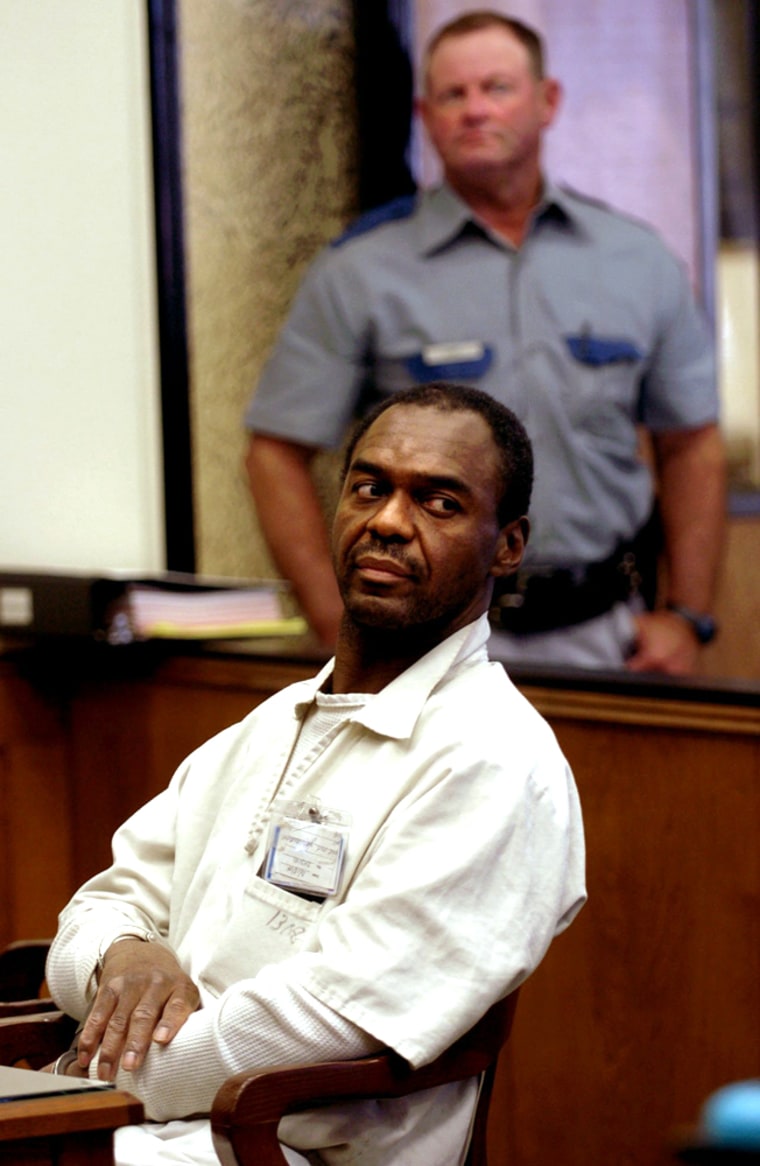When Coral Eugene Watts stood to hear his punishment after confessing to the vicious, random slayings of 13 women, the judge knew the prison sentence he was about to hand down was inadequate.
Sixty years was the most Watts could get, based on the evidence available to prosecutors, Texas Judge Doug Shaver told him in 1982. “Sad to say,” he added.
The sentence turned out to be even less than the judge imagined.
An appeals court ruling knocked decades off Watts’ term. And instead of being locked up until his 80s, he could be back on the streets just a year and a half from now — unless the state of Michigan can put him away for good in a murder trial set to begin Monday.
‘Cold-blooded killing machine’
Prosecutors are rushing to avoid what the Michigan attorney general’s office says would be the first release of a serial killer in the United States.
“He is a cold-blooded killing machine who randomly preyed on women,” said Andy Kahan of the Houston crime victims assistance office. “I don’t think there is any doubt in anybody’s mind that if he is released, he will resume his carnage against humanity.”
Nearly all the killings to which Watts confessed occurred in late 1981 and early 1982, after he moved to the Houston area from Michigan. Watts, a mechanic, targeted women he thought had “evil eyes.” He never sexually assaulted them.
He was captured in 1982 after he choked and beat Lori Lister, 19, in a parking lot, then dragged her to her apartment and tried to drown her in the bathtub. He bound her roommate with wire hangers, but she escaped and called police.
The slayings Watts confessed to — 12 in Texas and one in Michigan — were as varied as they were grisly. Most of the victims were stabbed or strangled. One was drowned in a swimming pool in Austin. Another was found hanging from a tree near Rice University in Houston. Watts told police that he strangled a Houston woman and then held her head in a flowerpot full of water to make sure she was dead.
But aside from his detailed confession, prosecutors had no evidence of his involvement in the killings. The killer wore a hood, picked his victims entirely at random, struck quickly and got away cleanly, leaving little or no physical evidence. In one case, authorities did not even realize that a homicide had been committed; they thought they were looking at an ordinary drowning.
Immunity for series of slayings
The families of Watts’ suspected victims pushed for a plea bargain, saying they wanted to know what happened to their loved ones. So prosecutors made a deal: They let him plead guilty to just one offense — burglary with the intent to commit murder — and granted him immunity for the murders so he would cooperate. Ultimately, he led police to three of the bodies.
The confessed serial killer was put away without ever actually being convicted of or pleading guilty to murder.
In sentencing Watts, Shaver ruled that he had used a deadly weapon — the bathtub filled with water — in an attempt to kill Lister. The deadly-weapon finding meant that Watts had to serve his full 60-year sentence, without time off for good behavior. He would either die behind bars or be an old man when he got out.
But in 1989, an appeals court ruled that Watts had not been properly notified of the finding and was thus entitled to good-behavior credit.
The ruling, combined with mandatory release laws that had been in place at the time to relieve prison overcrowding, lopped more than 35 years off his sentence. He is set to be released in April 2006 at age 52.
“This is a guy who just happened to hit the legal system in Texas at a strange time,” said Gerald Treece, an associate dean at South Texas College of Law here.
Desperate hunt for other crimes
When victims’ families realized a few years ago that Watts was going to get out, they put together petitions and pleaded with authorities to do something to keep him behind bars. Investigators in Michigan and Texas scoured old case files.
Earlier this year, a Michigan man who saw a TV report on the Watts case came forward to say he saw Watts struggle with Helen Mae Dutcher, 36, who was stabbed 12 times in the Detroit suburb of Ferndale in 1979. Next week, Watts will go on trial in Pontiac, Mich.
Although Watts did not confess to Dutcher’s slaying, the judge plans to admit his confession in the other murders as evidence of a pattern of behavior. If Watts is found guilty, he will get an automatic life sentence without parole.
Watts’ attorney, Ronald Kaplovitz, questions the witness’s 25-year-old identification of Watts and said he did not believe prosecutors had any scientific evidence. But he conceded that Watts’ confession would be hard to counteract.
“It certainly is very damaging to hear all this evidence about all of these other similar crimes he supposedly did,” Kaplovitz said.
Kahan, of the crime victims office in Texas, said the confession was critical because Watts was adept at leaving little evidence behind.
“That is how good this guy was,” Kahan said. “We are not exactly known for our leniency down here.”
